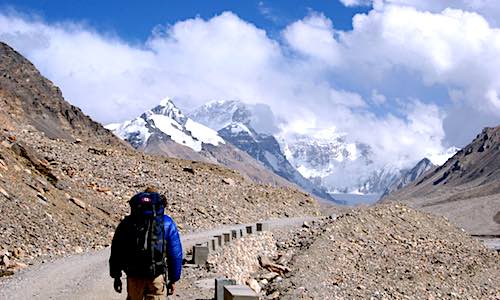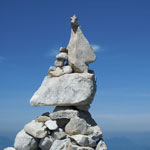
Loneliness By Age, Risks Increase Across Lifespan:
Many people feel lonely in their day-to-day lives.
That feeling seems particularly keen around the holiday time of year, when everyone’s supposed to be happy, joyous, perfect, and above-all, Together.
Any deficit in those areas can make a person feel terribly-isolated.
It turns-out Science has found this peak-feeling may be even more difficult for people of 3 particular age-groups…
The Risks Can Increase At Certain Times Of Life:
With certain times of the year, loneliness can be particularly tough.
Now that at least 50% of the US having some form of this problem, it’s not just tough, it’s widespread.
But the Short Answer Is: Within that number, people who are in the age-groups of 20s, 50s, and 80s have it even tougher than most people,
The researchers make a few guesses why, but regardless, that data is in. Read on to find-out more…
It’s Very Subjective:
It’s important to note a few things first.
Loneliness does not have to be a super-strict definition.
You don’t have to be physically-alone. It can still happen in for example: family-gatherings where you can’t connect with anyone.
It’s actually a subjective condition. If you Feel lonely, you probably Are.
And the health-study stats really don’t vary that much between fine-distinctions of it like social-isolation, lonely, or living-alone.
They all have similar-outcomes.
And that’s the problem, because Loneliness is now at epidemic-proportions and it appears to be pretty bad for your health.
Surprising Findings In Otherwise Normal People:
So for this work, Dr. Dilip Jeste and his team looked at just under 350 people in San Diego county aged between 27 and 101.
These people were all healthy, with no known serious physical or psychological problems.
And being so ordinary, none of the subjects were considered to be risks for any kind of serious loneliness.
But what the researchers expected was different than what they found, and surprising as-such.
Shattered-Expectations:
So the team expected to find out that
1) Older people were more lonely
2) The average loneliness would be at or below the national-average of 50%. (they actually expected about 1/3)
But their work resulted in a reported serious-loneliness rate of 76% of all subjects!
They also found that people around the age of 80 were not the only hot-spot for loneliness.
People in both their 20s and 50s were notably more lonely than average, too.
That was a shock, but they had some theories.
The Guess As To Why For Each Group:
The main theory for the octagenarians was that their social networks were diminishing, health problems were cropping up, and it was easier to be pessimistic about the future.
But for people in their 50s, the explanation was more one of mid-life crisis.
And the fact that it was accompanied by Loneliness instead of another form of distress was a surprise.
But most surprising of all was Loneliness in the group of twenty-somethings.
At this point in life, people were assumed to still have many of their social groups from school still intact.
So loneliness in that cohort was completely-unexpected.
Unexpected Loneliness In The 20-Something Age Group:
The general rationale researchers came up with was at this age, people are -just- starting to separate out from early social groups,
And they’re also beginning to make some of the larger-choices that begin their post-educational lives and take them off in wildly-varying directions.
Sort-of like a Big Bang for their high-school/college circles, flinging them out into entirely different galaxies than where they started.
(Jeste’s team may have neglected to consider the potential harmful-effects of technology and social-media, though.)
Somebody That You Used To Know:
And the other part of that concerns the rest of us.
Because not only is the general-level of some kind of reported, serious, loneliness in the west/US somewhere around 50%,
If you’re not one of those people,
Then statistically, you probably know one of those people.
They may be someone you fell out of touch with.
And most-importantly, Loneliness is associated with all kinds of bad health-outcomes.
The Physically-Unhealthy Part of Loneliness:
Regardless of how you define them, lonely people are more-likely to be unhealthy.
The issues include:
1) Chronically-elevated levels of stress-hormones
2) Worse colds, flu & symptoms
3) Higher Blood-Pressure
4) ~30% More Cardiovascular problems like Heart-Diseases
5) 32% Increased incidence of other Circulatory-Problems like Stroke.
6) More Auto-Immune Disorders
7) Increased-Difficulty Recovering from illnesses of all types
8) Reduced Immune-Response
9) Modified gene-expression in 200+ genes related to Inflammation
10) Declining Myelination of Brain-Cells
The Mentally-Unhealthy Part of Loneliness:
People who are lonely also have worse-outcomes in-terms of mental-health, too.
These can include things like increased rates of:
Anxiety, Depression, Substance-Abuse, Social Isolation, Brain Health problems,
And the increased-rates of Suicide that come with all of these conditions.
So in-addition to all the stress-related issues, the mental-impacts are serious, too.
But The Study Found A Ray Of Sunshine. Wisdom:
Now it may seem hard to define, and arbitrary if you do,
But according to the UCSD Wisdom Scale (SD-WISE), which was also developed in part by Dr. Jeste,
People who had higher tested-capacities in areas like:
1) Prosocial Attitudes & Behaviors
2) Social Decision-Making & General Life-Knowledge
3) Self-Regulation of Emotional-States
4) Reflection & Self-Understanding
5) Tolerance of Differing Value-Sets
6) Ability To Deal With Uncertainty & Ambiguity
And strangely-enough, these also correspond to strong-abilities in 6 different brain regions, too.
It’s certainly not an exhaustive list, but it’s a good start, and supported by early study work.
You Can Develop Those Skills, Too:
So if you wanted a list of skills to develop, that SD-WISE is probably a good starting-point.
But there’s more.
And it’s worth study, because not only are people especially at-risk in their 20s, 50s, and 80s,
The increased-mortality stats for Loneliness are about from 26%-32%, depending on your specifics, and that ain’t good.
Or Just Get Out There & Try Some More Stuff:
Try to just get outside more
Take online-activities in to physical spaces, like going to Target instead of ordering from Amazon,
Or, order from Amazon, then go pick up your stuff at a dropoff point like a Whole-Foods location.
Just plain smile, make eye-contact & be positive while you’re out there near people.
Reconnect with Family & Friends. Even if you say you have nothing to do on a specific date & ask them, they might actually be more compassionate & like you more than you think.
Reach-Out, Meet-Up, Become A Regular, Think Straight:
Watch out for Cognitive Distortions and unreasonable standards of perfection, as outlined by Dr. David D. Burns.
Find some place that fits you & become a “regular”, like Norm from “Cheers”.
Find something you’re interested-in and go do it in real-life with the ultimate pro-social ice-breaker, Meetup.com!
And as you progress slowly, and meet more people, each single one will make the whole seem a little less crucial,
Relax Into “You” By Lowering The Stakes:
This lets you worry less and relax more about potentially ruining the “one and only” good social contact you made.
Then you can just let individuals be themselves, find the ones you resonate with, and leave the rest be.
Either way, if you are one of the lonely-people out there no matter which type, you may be even more at-risk than you know.
But there Are things you can do, and qualities you can practice and cultivate to make your life happier and healthier, even to combat the Holiday Blues.
So get out there, get moving, and keep that health-sapping loneliness at-bay no matter what age group you’re in!
Photo Credits: “road to everest”, by Stuart Ward
Links:
• Source: UCSD
• More Coverage: UCSD WISE Evaluation | HT – Loneliness Early Mortality
• Source Study: IntlPsychGer. – High prevalence and adverse health effects of loneliness in community-dwelling adults across the lifespan: role of wisdom as a protective factor















